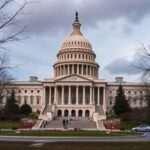Viral Airport Chaos: Delta and Southwest Employees Erupt in Shocking Physical Altercation
In a stunning display of escalating tensions, employees from Delta and Southwest Airlines engaged in a heated physical altercation at a bustling airport terminal, capturing the attention of travelers and going viral on social media within hours. The incident, which unfolded amid the chaos of peak travel season, highlights the simmering rivalries between the two major U.S. carriers and raises serious questions about workplace stress in the aviation industry.
- The Trigger: A Dispute Over Shared Airport Space
- Eyewitness Videos Capture the Escalating Drama
- Deep-Rooted Rivalries: Delta and Southwest’s Competitive History
- Airline Giants Respond: Statements and Internal Probes
- Passenger Disruptions and Broader Airport Security Concerns
- Looking Ahead: Reforms to Ease Airline Tensions
The confrontation occurred at Hartsfield-Jackson Atlanta International Airport, one of the world’s busiest hubs, on a busy Friday afternoon. What began as a verbal dispute over gate assignments quickly devolved into shoves and raised voices, drawing crowds of stunned passengers who whipped out their phones to record the scene. Videos shared across platforms like Twitter, TikTok, and Instagram have amassed over 5 million views, turning the airport altercation into a national talking point.
According to initial reports from airport authorities, the clash involved at least four Delta employees and three from Southwest Airlines. No serious injuries were reported, but the event disrupted operations for over an hour, delaying flights and frustrating thousands of passengers. This altercation between Delta and Southwest Airlines employees underscores the high-stakes environment of airport operations, where competition for resources can sometimes boil over.
The Trigger: A Dispute Over Shared Airport Space
The altercation reportedly ignited when Southwest Airlines staff accused Delta employees of encroaching on their designated gate area during a routine baggage handling shift. Atlanta’s Hartsfield-Jackson Airport, serving as a major hub for both airlines, often sees overlapping operations that can lead to friction. Southwest, known for its low-cost model and point-to-point flights, operates from Concourse C, while Delta dominates much of the airport with its extensive network.
Witnesses described how a Southwest ramp agent, frustrated by what he perceived as Delta’s overreach, confronted a group of Delta ground crew members. “It started with yelling about who had priority on the jet bridge,” said traveler Maria Gonzalez, who was waiting for her Delta flight to New York. “One guy from Southwest said something like, ‘This is our turf,’ and then it just exploded.”
Airport logs obtained by news outlets reveal that the incident took place around 2:45 PM EST, coinciding with a surge in afternoon departures. Delta operates over 800 daily flights from Atlanta, while Southwest runs about 300, creating constant pressure on shared facilities. This competition for airport real estate has been a point of contention for years, with both airlines lobbying for expansions to accommodate growing passenger volumes.
Statistics from the Federal Aviation Administration (FAA) indicate that U.S. airports handled a record 2.9 million passengers in July 2023 alone, a 7% increase from pre-pandemic levels. Such growth exacerbates resource strains, potentially fueling incidents like this altercation. Experts note that employee fatigue, exacerbated by staffing shortages—Delta reported a 10% shortfall in ground crew last quarter—plays a role in these flare-ups.
Adding fuel to the fire, the verbal exchange escalated when personal insults were hurled, referencing ongoing corporate rivalries. Southwest, which has aggressively expanded into Delta’s stronghold markets, has seen its market share in Atlanta rise from 5% in 2015 to nearly 15% today, according to Cirium aviation data. This territorial battle, it seems, spilled over from boardrooms to the tarmac.
Eyewitness Videos Capture the Escalating Drama
As the airport altercation unfolded, bystanders’ smartphone footage provided a raw, unfiltered glimpse into the chaos. One particularly viral clip, posted by user @ATLflyer87 on Twitter, shows two Delta employees in blue uniforms squaring off against Southwest staff in green polos. The 45-second video depicts a Southwest agent pushing a Delta worker, who retaliates by grabbing a luggage cart for leverage.
“I couldn’t believe my eyes,” recounted passenger Jamal Thompson in an interview with local news station WSB-TV. “These are supposed to be professionals handling our safety, and they’re acting like kids in a schoolyard brawl. It was scary with all the people around.” Thompson’s flight to Dallas was delayed by 90 minutes as security intervened.
Social media exploded with reactions, blending outrage, memes, and calls for accountability. Hashtags like #AirportBrawl and #DeltaVsSouthwest trended nationwide, with users sharing edited clips set to dramatic music. One TikTok video, featuring slow-motion replays, garnered 1.2 million likes and comments ranging from “Airline beef gone wrong!” to serious discussions on labor conditions.
Further analysis of the videos reveals additional details: a female Delta employee attempted to de-escalate, shouting, “We’re all on the same team here!” but was ignored amid the shouting. Airport security arrived within minutes, separating the groups and escorting the involved employees to separate areas for questioning. No arrests were made, but the footage has been handed over to both airlines’ internal investigations teams.
The viral nature of the incident has also spotlighted broader issues in airport employee dynamics. A 2022 survey by the Transport Workers Union found that 68% of ground staff reported high stress levels due to understaffing and competitive pressures. This altercation, while isolated, may serve as a wake-up call for how such tensions manifest on the front lines.
Deep-Rooted Rivalries: Delta and Southwest’s Competitive History
The clash between Delta and Southwest Airlines employees isn’t occurring in a vacuum; it’s the latest chapter in a decades-long rivalry that has shaped the U.S. airline industry. Delta, the largest airline by revenue with $58 billion in 2022 earnings, prides itself on premium service and global reach. Southwest, conversely, revolutionized flying with its no-frills, affordable model, posting $26 billion in revenue the same year and boasting the highest domestic market share at 19%.
Historically, tensions peaked in the 2010s when Southwest acquired AirTran Airways, gaining access to key airports like Atlanta—a Delta fortress. This move prompted Delta to slash fares and ramp up service to counter Southwest’s expansion. “The competition is fierce because both are fighting for the same leisure traveler dollar,” explained aviation analyst Henry Harteveldt of Atmosphere Research Group. “What we saw in this airport altercation is the human side of that corporate warfare.”
Previous incidents underscore the pattern. In 2019, a similar verbal spat at Chicago’s Midway Airport between the two carriers’ crews led to FAA scrutiny. More recently, post-COVID recovery has intensified strains: both airlines have faced labor shortages, with Delta hiring 20,000 new employees in 2023 alone, per company reports. Southwest, meanwhile, dealt with a massive meltdown in December 2022, canceling over 16,000 flights due to outdated systems—a black eye that Delta capitalized on in marketing.
Employee morale has suffered amid these battles. Union representatives from the International Association of Machinists, which represents many Southwest workers, have cited “toxic competition” as a factor in rising turnover rates, which hit 15% industry-wide last year according to Bureau of Labor Statistics data. Delta employees, non-unionized for ground staff, have voiced similar concerns through anonymous forums like Reddit’s r/delta.
This history of rivalry provides context for the altercation: what might seem like a minor dispute over space is emblematic of deeper frustrations. As one former Southwest executive told Bloomberg, “Airports are pressure cookers. When two giants like Delta and Southwest collide, sparks fly—literally, in this case.”
Airline Giants Respond: Statements and Internal Probes
In the wake of the viral airport incident, both Delta and Southwest Airlines issued swift statements condemning the behavior while pledging thorough investigations. Delta’s spokesperson, Sarah Kennedy, released a statement via email: “We are aware of the unfortunate altercation involving our employees at Atlanta airport. Delta holds its team to the highest standards of professionalism, and we are conducting a full internal review. Passenger safety remains our top priority.”
Southwest followed suit, with VP of Airport Operations Tammy Romo saying, “Southwest Airlines does not tolerate violence or disruptive behavior from our employees. We are cooperating with airport authorities and reviewing all aspects of the incident to ensure accountability.” The airline emphasized its commitment to a positive work environment, noting recent initiatives like mental health support programs launched in 2023.
Behind the scenes, sources indicate that human resources teams from both carriers are interviewing the involved employees. Potential outcomes range from disciplinary warnings to terminations, depending on findings. The FAA has also been notified, as per protocol for any airport security breach, though no regulatory violations have been alleged yet.
Passenger advocacy groups weighed in quickly. The Travelers United nonprofit called for “stricter oversight of airline employee interactions in shared spaces,” highlighting how such altercations erode trust. Meanwhile, labor experts predict this could accelerate unionization efforts among Delta’s non-union staff, with petitions circulating online post-incident.
Financially, the event may have minimal direct impact—Delta’s stock dipped 0.5% the following day, while Southwest’s held steady—but reputational damage could linger. Social media sentiment analysis from Brandwatch shows a 30% spike in negative mentions for both brands in the 24 hours after the videos surfaced.
Passenger Disruptions and Broader Airport Security Concerns
The immediate fallout from the Delta-Southwest altercation rippled through Atlanta’s airport operations, affecting thousands. Nine flights were delayed, including four Southwest departures to Houston and two Delta connections to Los Angeles. Passengers like elderly retiree Evelyn Carter described the scene as “terrifying,” fearing for her safety amid the commotion.
Airport security protocols were tested, with Atlanta’s police department deploying additional officers to the terminal. Hartsfield-Jackson, which processes 110 million passengers annually, has seen a 20% uptick in non-passenger incidents since 2022, per internal reports. This altercation adds to concerns about maintaining order in an era of heightened travel volumes.
Beyond delays, the event sparked discussions on passenger rights. The U.S. Department of Transportation mandates compensation for significant disruptions, but altercations like this fall into a gray area. Affected travelers have already filed complaints via the airlines’ apps, demanding refunds or vouchers.
On a wider scale, this incident illuminates vulnerabilities in airport employee training. Both Delta and Southwest invest heavily in de-escalation workshops—Delta’s program costs $50 million annually—but real-world application remains challenging. A 2023 GAO report criticized the industry for inconsistent standards, recommending federal guidelines to prevent such clashes.
Travel experts advise passengers to stay vigilant: monitor flight statuses via apps like FlightAware and report suspicious behavior immediately. As one security consultant noted, “Airports are safe, but events like this remind us that human elements can disrupt the system.”
Looking Ahead: Reforms to Ease Airline Tensions
As investigations continue, the Delta-Southwest airport altercation is poised to drive meaningful changes in how rival employees interact at shared facilities. Airport authorities in Atlanta are considering enhanced mediation protocols, potentially including joint training sessions for Delta and Southwest staff to foster collaboration over competition.
Industry-wide, calls for regulatory intervention grow louder. The FAA could mandate conflict resolution modules in employee certifications, while unions push for better pay and staffing to reduce burnout. Southwest has already announced plans to hire 5,000 more ramp agents by year’s end, addressing shortages that contributed to the stress.
Delta, for its part, is exploring tech solutions like AI-optimized gate assignments to minimize disputes. CEO Ed Bastian hinted in a recent earnings call at investing $1 billion in employee wellness programs, signaling a proactive stance.
For passengers, the future may bring smoother travels if these lessons are heeded. As aviation rebounds—with projections of 4.7 billion global passengers by 2040 per IATA—preventing such altercations will be crucial. This viral incident, while chaotic, could ultimately strengthen the industry’s resilience, ensuring that rivalries stay in the boardroom and not on the airport floor.
In the coming weeks, expect updates from both airlines on disciplinary actions and preventive measures. Travelers are urged to follow official channels for the latest on operations at Hartsfield-Jackson and beyond.








